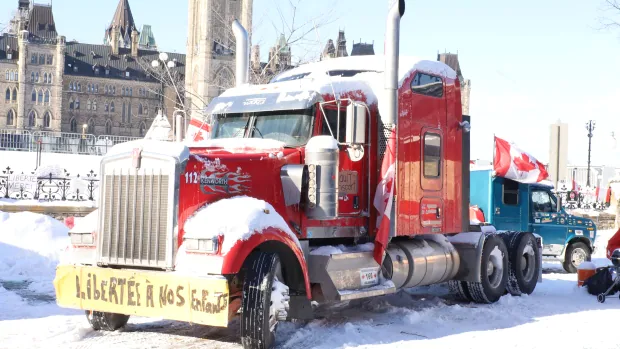Canada has become one of the first countries in the world to require online crowdfunding platforms to report to its anti-money laundering and terrorist financing watchdog, government officials told a special committee examining the truck convoy protest and the steps the government took to end it.
Finance department officials said new regulations went into effect last week, adding crowdfunding platforms and some payment processing companies to the list of companies obliged to report large or suspicious transactions to the Financial Transactions and Reports Analysis Centre, Canada’s financial intelligence unit.
Barry MacKillop, deputy director of intelligence for FINTRAC, said the regulations close a gap that could be exploited.
“Certainly, I do believe that having them as subject to the Proceeds of Crime, Money Laundering, Terrorist Financing Act would at the very least act as a deterrent for anyone who might want to use a crowdfunding platform to advance nefarious activities,” MacKillop told MPs and senators on the committee set up to examine the government’s use of the Emergencies Act.
Millions raised on GoFundMe, GiveSendGo
Julian Brazeau, director general of the Finance department’s financial crimes and security division, said to his knowledge Canada is the first country to require crowdfunding platforms to report transactions to a body like FINTRAC.
The power of crowdfunding companies to raise money was in the spotlight earlier this year after organizers of the truck convoy protest — which paralyzed downtown Ottawa for three weeks and blocked various border crossings — successfully raised millions of dollars from donors both from Canada and abroad, first on GoFundMe and then on GiveSendGo.
The government first required crowdfunding platforms to report to FINTRAC as part of the Emergency Economic Measures Order it adopted when it invoked the Emergencies Act to resolve the truck convoy protest. When the declaration of an emergency was revoked, that requirement ended. However, the government telegraphed plans to require crowdfunding platforms to report to FINTRAC in its budget last month, then published new regulations April 27 in The Canada Gazette.
In the explanation that accompanies the regulations, the government said the international Financial Action Task Force has identified crowdfunding platforms “as an emerging area of risk for terrorist financing.”
That crowdfunding platforms weren’t required to report certain transactions to FINTRAC presents “a serious and immediate risk to the security of Canadians and to the Canadian economy,” it wrote.
“This risk was highlighted in early 2022, when illegal blockades took place across Canada that were financed, in part, through crowdfunding platforms and payment service providers. Allowing these gaps to continue represents a risk to the integrity and stability of the financial sector and the broader economy, as well as a reputational risk for Canada.”
New regulations
The regulations will introduce a number of new requirements for crowdfunding platforms.
“Obligations include registration with FINTRAC, reporting requirements (including suspicious transactions and large value transactions), record keeping, customer due diligence and developing a compliance program,” the government wrote.
The regulations include transactions in both traditional and virtual money like cryptocurrencies and “apply to domestic entities, as well as foreign entities when they direct their services to Canadians.”

The government said approximately 1,000 crowdfunding platforms and additional payment processors will now have to report to FINTRAC. It estimates it will cost the platforms a total of $18-$20 million over the next 10 years in administrative and compliance costs.
Much of Tuesday evening’s committee hearing focused on the Emergency Act provisions that resulted in 280 bank accounts or other financial accounts being frozen for several days. MPs and senators peppered the officials from the finance department and FINTRAC with questions, wanting to know why it was done and how it was carried out. Conservative MP Glen Motz said the move has shaken the trust of many Canadians in the government and Canada’s banks.
Assistant deputy minister Isabelle Jacques said the measure was adopted to stop money from flowing to the protest and dissuade protesters from remaining on Parliament Hill. Once they left the protest, their accounts were unfrozen, with all of the accounts unfrozen by Feb. 24. Jacques pointed out that it was up to financial institutions to decide which accounts should be frozen, based on information provided by the RCMP.


















.png)


Discussion about this post